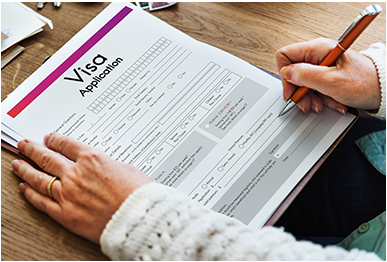GRE Course Overview
The GRE (Graduate Record Examination) is a standardized test that measures verbal reasoning, quantitative reasoning, critical thinking, and analytical writing skills. It is commonly used as an admission requirement for graduate schools and business schools.
The GRE exam also includes an unscored research section and a scored experimental section, which are used to test new questions or evaluate the difficulty level of existing questions.
The test is computer-based and adaptive, meaning that the difficulty of the questions will adjust based on your performance. The length of the exam is about 3 hours and 45 minutes, including breaks. The scores on the GRE range from 130 to 170 for each section, with a total score of 260 to 340.

The verbal reasoning section of the GRE (Graduate Record Examination) is designed to assess a test-taker’s ability to understand and analyze written material, as well as their ability to synthesize information and draw conclusions based on that material. This section consists of two types of questions: reading comprehension and text completion/sentence equivalence.
The reading comprehension questions ask the test-taker to read passages of varying length and complexity and answer questions based on the information presented in the passage. These questions may require the test-taker to identify the main idea of the passage, determine the author’s tone or attitude, infer the meaning of words or phrases, or identify supporting details or evidence.
The text completion/sentence equivalence questions ask the test-taker to fill in the blanks in a sentence or paragraph with the most appropriate word or phrase. The test-taker may be asked to select one or more correct answers, and the questions may involve identifying synonyms or antonyms, recognizing idiomatic expressions, or understanding the relationships between words and concepts.
Both types of questions require a strong command of the English language, including an extensive vocabulary and an understanding of grammatical structures and syntax. Test-takers who are able to read and understand complex texts, identify key concepts, and make logical inferences based on that material will perform well on this section of the exam.
To prepare for the verbal reasoning section of the GRE, it is important to read widely and regularly, paying attention to the structure, style, and content of different types of writing. Vocabulary-building exercises can also be helpful, as well as practice tests and review materials designed specifically for the GRE.

The quantitative reasoning section of the GRE (Graduate Record Examination) is designed to assess a test-taker’s ability to reason quantitatively, solve problems using mathematical concepts and apply mathematical models to solve real-world problems. This section consists of two types of questions: problem-solving and data interpretation.
The problem-solving questions require the test-taker to use basic arithmetic, algebra, geometry, and data analysis skills to solve quantitative problems. These questions may involve calculating percentages, solving linear equations, identifying geometric shapes and their properties, and interpreting data presented in tables, graphs, and charts.
The data interpretation questions ask the test-taker to analyze and interpret data presented in a variety of formats, such as tables, graphs, and charts. These questions may require the test-taker to identify trends and patterns in the data, calculate probabilities, and make inferences based on the information presented.
Both types of questions require a strong understanding of mathematical concepts and a ability to apply those concepts to solve quantitative problems. Test-takers who are able to quickly identify the mathematical concepts and formulas needed to solve each problem, and who can use those concepts to make accurate calculations and interpret data, will perform well on this section of the exam.
To prepare for the quantitative reasoning section of the GRE, it is important to review fundamental mathematical concepts and formulas, including algebra, geometry, and basic statistics. Test-takers should practice solving a variety of quantitative problems, using both basic and more advanced problem-solving techniques. They should also practice interpreting data presented in tables, graphs, and charts, and be able to identify trends and patterns in the data. GRE-specific practice tests and review materials can be helpful in preparing for this section of the exam.

The analytical writing section of the GRE (Graduate Record Examination) is designed to assess a test-taker’s ability to articulate complex ideas, evaluate arguments, and communicate effectively in writing. This section consists of two tasks: Analyze an Issue and Analyze an Argument.
The Analyze an Issue task requires the test-taker to provide a written response to a prompt that presents an issue and asks the test-taker to take a position on that issue. The test-taker must provide evidence and examples to support their position, and address potential counterarguments or alternative perspectives.
The Analyze an Argument task requires the test-taker to evaluate an argument presented in a prompt and provide a written response that critiques the argument’s reasoning, assumptions, evidence, and/or conclusions. The test-taker must provide specific examples and evidence to support their analysis, and demonstrate an ability to identify flaws or weaknesses in the argument.
Both tasks require the test-taker to demonstrate strong critical thinking skills, including an ability to identify and evaluate complex arguments, synthesize and organize ideas, and communicate effectively in writing. The test-taker must also be able to use relevant examples and evidence to support their analysis and effectively address potential counterarguments or alternative perspectives.
To prepare for the analytical writing section of the GRE, it is important to practice writing well-organized, well-supported, and clearly articulated essays. Test-takers should practice both the Analyze an Issue and Analyze an Argument tasks, and focus on developing strong thesis statements, using evidence and examples effectively, and addressing potential counterarguments. It can also be helpful to study sample essays that have received high scores on the exam, and to seek feedback from others on their writing. GRE-specific writing workshops and resources can also be helpful in preparing for this section of the exam.





